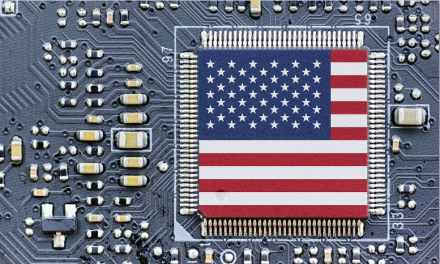What’s the SCOOP – Thought #5 of 8 – Sustainable Solutions

By Philip Spagnoli Stoten Founder of SCOOP
It seems the issue of sustainability ebbs and flows in the manufacturing space, sometimes other disruptions or crises seem to take priority and other times it’s among the most important issues in the boardroom. But the fact of the matter is that the environment and our impact upon it may be the most existential crisis facing our industry and indeed our lives.
Sustainability isn’t just about the environment. For a business to be sustainable it must have a sustainable business model. One that can survive through disruption and one that does not rely on the short term exploitation of the planet or its people. Sustainable businesses are in it for the long term and provide a solid value proposition for their customers, their team and their shareholders. One might say the rise of stakeholder value as a priority is a much more sustainable model than the constant drive to hit quarterly earnings targets.
Examples of unsustainable business models, or even unsustainable industrial models, could be constantly chasing low cost labor around the world. This has proved to be damaging to the industry and damaging to the relationship between OEM and EMS, where price, rather than service, had become the overriding factor in vendor selection. With respect to the short, medium and long term impact on those lower cost regions, it is clear an influx of manufacturing can help develop undeveloped economies, but at what cost to the local environment?
Supply chains too need to become more sustainable, and some trends are driving towards shorter more sustainable supply chain solutions. Recent disruptions to manufacturing in China have combined with logistical challenges to encourage people to rethink their supply chains and in particular their supply chain geography. Component shortages are encouraging chip makers to diversify their geographical footprint, sometimes helped by substantial government incentives. While geopolitical pressure is pushing supply chain managers to take a more risk-averse approach and consider investing in manufacturing closer to design and closer to the consumer. Regional pressure around supply chain security is certainly encouraging a more regional manufacturing model.
In my last blog I mentioned connected cultures, underlining the importance of having a culture that starts at the consumer and connects through the brand and into the supply chain. Well, a large part of that is the culture and ideology around sustainability and environmental impact. Sustainable products design and manufactured sustainable is an admirable goal and the manufacturing industry will need to play its part in delivering on the sustainability pledges of the brands they serve. Many brands are making sustainability a bigger part of vendor selection and developments like the German Supply Chain act can only accelerate this trend.
Perhaps more sustainable supply chains can be shorter, more regionalized and more robust. Perhaps they can deliver more sustainable, well paid, and rewarding jobs in developed and developing countries. Perhaps they can create more sustainable products, more sustainable businesses and a more sustainable industry.
What is certain is that sustainable manufacturing solutions and sustainable supply chains are an essential part of the future for our industry and for the entire planet.
These blogs are also available in audio form on the “EMS@C-Level” podcast, wherever you get your podcast or at https://emsatc.buzzsprout.com
See also:











